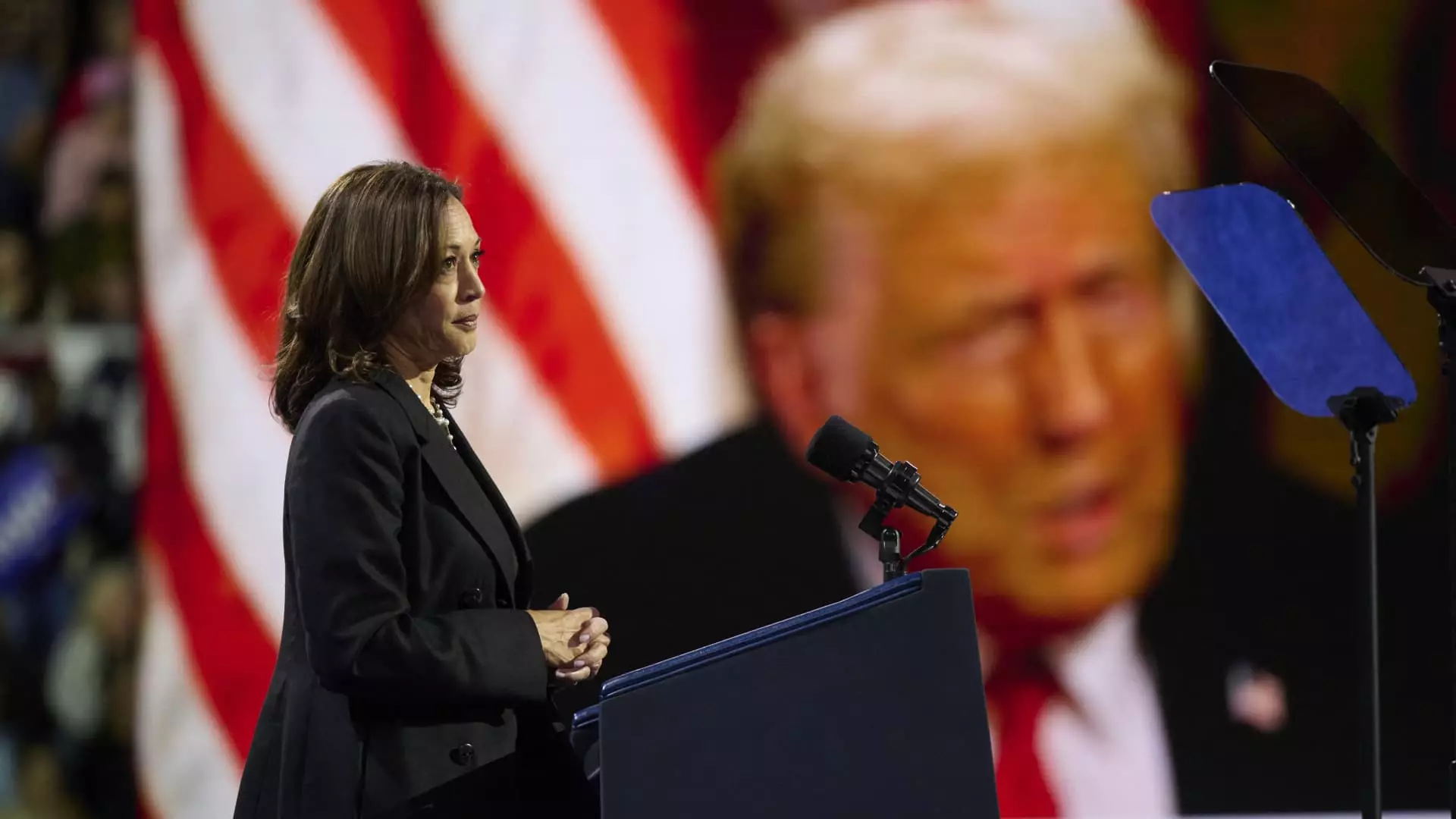In the evolving world of political betting, recent developments on the platform Polymarket have set off alarm bells and captured national attention. The substantial financial movements surrounding former President Donald Trump’s odds in the upcoming 2024 presidential election have raised eyebrows among analysts and political enthusiasts alike. Specifically, four accounts collectively have funneled over $28 million into bets favoring Trump, prompting inquiries into the identity and motives of the entities behind these bets. What initially appeared to be a collection of independent bettors soon came to light as the workings of a singular, highly experienced trader with a notable background in finance.
Polymarket recently disclosed that the massive investments in Trump’s candidacy stem from a single French national known for their adept trading skills. The connection to a reputed centralized crypto exchange, identified as Kraken, has further fed the speculation regarding the trader’s influence on the market. While Polymarket has stated no evidence exists to suggest any attempt to artificially boost Trump’s odds, the sheer scale of the investments raises legitimate questions about market manipulation and the ethical considerations of political gambling.
The scrutiny surrounding these bets highlights the blurry lines between speculating on political outcomes and influencing them. Although Polymarket has worked diligently with third-party experts to assure users that no manipulative actions occurred, the implications of having a single player with such clout in a nascent market certainly merit closer investigation. The speculation surrounding this situation exemplifies the inherent risks present in prediction markets — where money flows toward expected outcomes, potentially creating distortions that contradict the political realities indicated by conventional polling methods.
A key point emphasized by Polymarket is the distinction between prediction markets and traditional polling. While many still perceive these markets as barometers of public sentiment, they inherently serve as measures of likelihood based on monetary commitments rather than a reflection of voter intent or preference. Elon Musk, the influential CEO of Tesla and SpaceX, recently advocated for the superiority of betting markets over polls, asserting that they are more indicative because they draw on real financial stakes.
Polymarket’s officials caution against conflating these two approaches to gauging political viability. Even as bettors pull in substantial amounts, the diversification of opinion in a market does not necessarily mirror the sentiments of the general populace, as evidenced by the disparity between Polymarket’s growing odds for Trump and the traditional polling data, which indicates a more neck-and-neck race with Kamala Harris.
The emergence of political betting platforms like Polymarket and its competitors, such as Kalshi and Interactive Brokers, raises not only questions of market integrity but also legal ramifications. Following a settlement with the Commodity Futures Trading Commission (CFTC), Polymarket currently operates outside the U.S. market, a restriction that puts pressure on platforms attempting to navigate this complex regulatory environment. The controversy surrounding Kalshi’s recent rulings in the federal appeals court demonstrates ongoing tension between innovation in financial services and the regulatory landscape governing them.
As the 2024 election draws nearer, the implications of betting markets will only continue to unfold. The prevalence of substantial movements on platforms like Polymarket indicates a robust engagement in political betting, yet the challenge of ensuring integrity, fairness, and transparency cannot be overlooked.
The dynamic nature of political gambling is capturing the imagination of many, but it also serves as a cautionary tale about the potential for various forces to shape electoral outcomes behind the scenes. The case of the single trader influencing Trump’s betting odds is a highlight of the complexities intertwined in prediction markets. As the election cycle crescendos, stakeholders—both bettors and regulators—must remain vigilant to uphold the integrity of the democratic process against the often turbulent seas of financial incentives. Given that these markets are still in their infancy, the evolution of political gambling and its ramifications is one area that will be critical to watch in the months ahead.


Leave a Reply